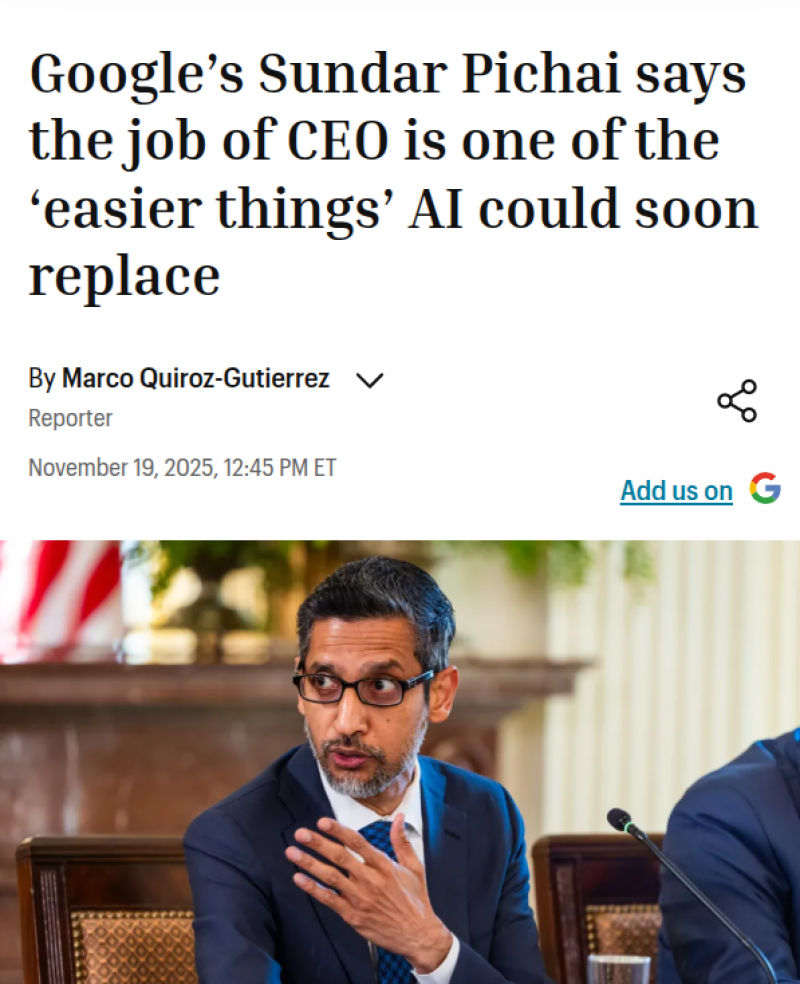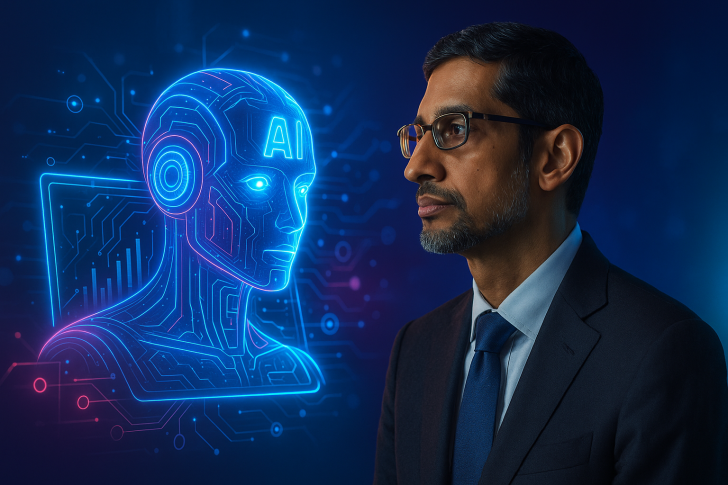⬤ Google (GOOGL) is spotlighting a dramatic transformation in how artificial intelligence might reshape corporate leadership in the very near future. CEO Sundar Pichai recently stated that AI agents could start managing intricate business tasks over the next 12 months, and surprisingly noted that running a company might actually be "one of the easier things" for AI to handle. He laid out a vision where intelligent systems would tackle everything from planning and coordination to day-to-day operations inside major organizations.

⬤ Pichai stressed that AI's rapid evolution will fundamentally change job landscapes across every industry. While some roles will disappear as automation spreads, others will morph into hybrid positions where humans work alongside AI-powered tools. This perspective lines up with striking findings from an edX study showing that 49 percent of Fortune 500 CEOs think most or all of their responsibilities should eventually be automated. Executive tasks like scheduling, data analysis, oversight, and structured decision-making could shift toward algorithmic platforms faster than many anticipated.
⬤ Pichai's public comments reflect Google's aggressive push into advanced AI agents that can reason through multi-step challenges and support sophisticated organizational workflows. The 12-month timeframe he mentioned adds real urgency to ongoing debates about automation's impact on productivity and corporate structures. If AI truly begins absorbing high-level operational duties, it could completely reshape how companies are organized, redefine productivity benchmarks, and shift competitive advantages across both tech and traditional industries. For GOOGL investors, these developments signal how the company's AI leadership might influence market dynamics as businesses race toward agent-driven operations.
 Peter Smith
Peter Smith

 Peter Smith
Peter Smith


